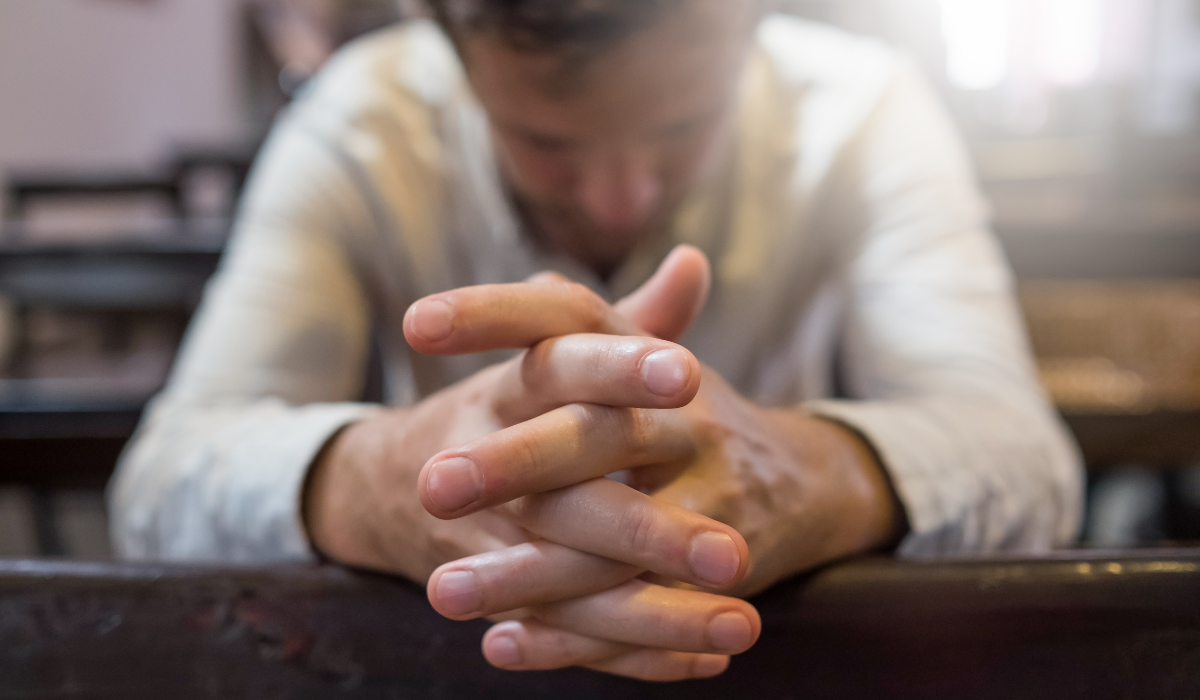Why am I Praying in my Sleep

Sleep is a vital aspect of our lives. It provides the body with the necessary rest and helps recharge our minds. However, sometimes during sleep, we may experience different occurrences, one of which is praying in our sleep. While some people may find it normal, others may find it bizarre and even concerning. This article explores why we pray in our sleep, the potential meanings behind it, and how to manage it.
Understanding Sleep and Dreams
Before delving into sleep praying, it is essential to understand sleep and dreams. Sleep is a natural physiological state of rest that occurs in cycles throughout the night. During sleep, the brain goes through different stages, including light sleep, deep sleep, and REM (Rapid Eye Movement) sleep. Dreams occur during the REM sleep stage and may be influenced by various factors, including emotions, experiences, and memories.
What is Sleep Praying?
Sleep praying is a phenomenon that occurs when individuals pray during their sleep. It may manifest in different forms, including reciting prayers, engaging in religious rituals, or making supplications. Sleep praying is a form of parasomnia, which refers to unusual occurrences during sleep that may cause distress, discomfort, or confusion.
Causes of Sleep Praying
Sleep praying may be attributed to several factors, including:
- Religious Beliefs
Religious beliefs may influence sleep praying, especially for individuals who have strong religious convictions. Sleep praying may occur as a result of religious practices and beliefs that are ingrained in one’s subconscious mind.
- Stress and Anxiety
Stress and anxiety may contribute to sleep praying. These emotions may cause the brain to remain active during sleep, leading to dreams that may manifest as prayer.
- REM Sleep Behaviour Disorder
REM Sleep Behaviour Disorder (RBD) is a sleep disorder that occurs when the body fails to paralyse during REM sleep, leading to physical movements and vocalisations during sleep. RBD may cause sleep praying as the brain tries to incorporate religious practices into the dream.
- Sleep Apnea
Sleep apnea is a sleep disorder characterised by breathing difficulties during sleep. Sleep apnea may cause disruptions in sleep, leading to vivid dreams and possibly sleep praying.
The Meaning of Sleep Praying
Sleep praying may have different meanings for different individuals, depending on their religious beliefs and personal experiences. Some people may view sleep praying as a spiritual experience, while others may view it as a manifestation of stress and anxiety.
Coping Strategies
Sleep praying may be uncomfortable and distressing for some individuals. The following coping strategies may help manage sleep praying:
- Mindful Meditation
Mindful meditation may help reduce stress and anxiety, leading to improved sleep quality and reduced occurrences of sleep praying.
- Relaxation Techniques
Relaxation techniques such as deep breathing, progressive muscle relaxation, and guided imagery may help induce relaxation and improve sleep quality.
- Different Forms of Sleep Praying
Sleep praying is a fascinating phenomenon that occurs during sleep when a person utters prayers or religious words without conscious awareness. Sleep praying can take many different forms, and it can be difficult to distinguish from other sleep disorders such as sleep talking.
One form of sleep praying is called “recurrent isolated sleep paralysis-associated complex hallucinations with religious content” (RISP). In this form, individuals experience vivid hallucinations during sleep that are often accompanied by feelings of fear or dread.
Tips for Recording Sleep Praying Episodes
If you or someone you know experiences sleep praying, it can be helpful to record these episodes for further analysis and understanding. Here are some tips for recording sleep praying episodes:
1. Use a voice recorder: A voice recorder is a simple and effective tool for recording sleep praying episodes. Keep it near your bed and turn it on before going to sleep.
2. Keep a sleep diary: In addition to recording sleep praying episodes, keeping a sleep diary can help you track patterns and triggers that may be contributing to this behavior. Note things like bedtime, wake-up time, food and drink consumption, exercise, stress levels, and any medications you are taking.
3. Use a sleep tracking app: There are many sleep tracking apps available that can monitor your sleep patterns and record any instances of sleep praying. Look for apps that specifically track sleep talking or other sleep-related behaviors.
4. Consider a sleep study: If you are experiencing frequent sleep praying or other sleep disturbances, a sleep study may be helpful. This involves spending a night in a sleep lab where your sleep can be monitored and recorded by healthcare professionals.
5. Be patient: Recording sleep praying episodes can take time and patience, as they may not occur every night or on a regular schedule. Be consistent with your recording efforts and don’t give up if you don’t record anything for a few nights in a row.
Conclusion
Sleep praying is a fascinating and sometimes puzzling phenomenon that occurs during sleep when individuals utter prayers or religious words without conscious awareness. While the exact causes of sleep praying are not fully understood, it may be related to genetics, stress, and sleep quality.
RECENT ARTICLES
